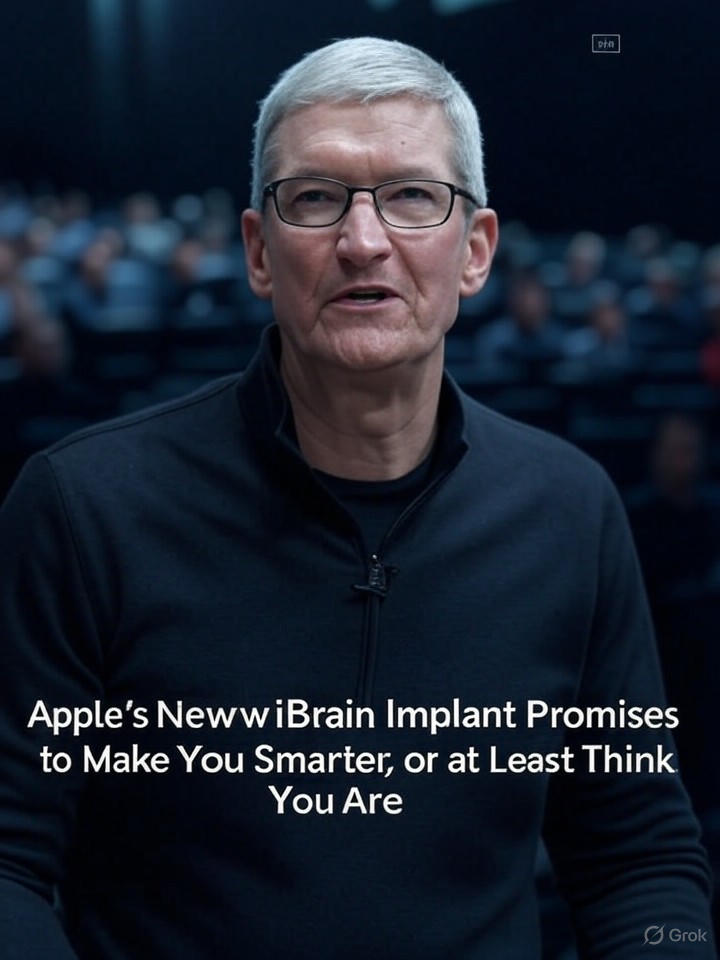CUPERTINO, CA – In a keynote that had tech enthusiasts drooling more than a toddler with a new iPad, Apple CEO Tim Cook announced the iBrain, a revolutionary neural implant designed to boost intelligence. Or, as Cook put it, 'make you feel like the smartest person in the room, even if that room is full of actual geniuses.' The device, which looks suspiciously like a tiny Apple Watch strapped to your gray matter, promises to integrate seamlessly with your thoughts, turning mundane musings into productive genius.
According to Apple's glossy promo video, the iBrain will analyze your brainwaves in real-time, suggesting brilliant ideas like 'Hey, why not invent a better mousetrap?' or 'Have you considered starting a podcast?' Critics, however, are skeptical. Tech analyst Lena Byte quipped, 'This isn't augmentation; it's augmentation theater. You'll think you're Einstein, but really, you're just Siri with a superiority complex.'
The implant syncs with all your Apple devices, meaning your iPhone can now read your mind – literally. Forgot your grocery list? No problem; iBrain will remind you to buy organic kale and that overpriced kombucha you pretend to like. But privacy advocates are up in arms, warning that Apple could mine your deepest thoughts for ad revenue. 'One day you're pondering existential dread, the next you're getting targeted ads for therapy apps,' said privacy expert Max Encrypt.
In a demo that wowed the audience, Cook showcased how iBrain could help with everyday tasks. A volunteer thought about solving a Rubik's Cube, and voila – the implant provided step-by-step instructions via neural whispers. Of course, the cube was already half-solved, but who's counting? Apple assures us that future updates will include features like 'instant wit' for social gatherings and 'fake knowledge' for impressing dates.
Not everyone is sold on the idea. Health experts worry about side effects, such as 'iBrain fog,' where users become so reliant on the chip they forget how to tie their own shoes. And let's not forget the surgery – a quick outpatient procedure that sounds about as fun as a root canal without anesthesia. 'It's minimally invasive,' Cook assured, 'unless you count the part where we drill into your skull.'
Competitors are scrambling to catch up. Google is reportedly working on 'MindDroid,' which promises to make you smarter by feeding you conspiracy theories, while Meta's 'ZuckLink' aims to connect your brain directly to the metaverse, because who doesn't want to live in a virtual hellscape 24/7?
Apple fans, undeterred, are already lining up for pre-orders. One enthusiast gushed, 'I've been waiting my whole life to have Apple inside my head. Now my thoughts can be as polished and overpriced as my MacBook!' Priced at a mere $999 (plus installation fees), the iBrain is set to launch next year, assuming the FDA doesn't declare it a public nuisance first.
In the end, whether iBrain makes you smarter or just more insufferable remains to be seen. But one thing's for sure: in the world of tech, perception is reality. So go ahead, plug in, and let Apple do the thinking for you. Just don't blame us when your inner monologue starts demanding software updates.

